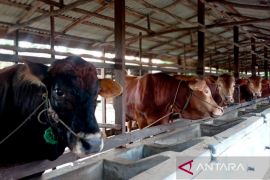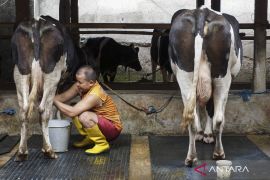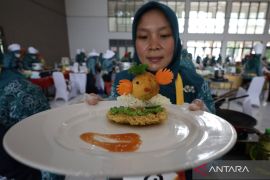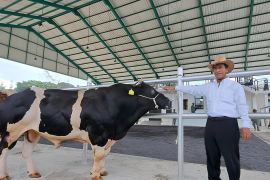BPOM head Taruna Ikrar explained his agency's role in this effort, which includes issuing certificates for Good Processed Food Manufacturing Practices, granting distribution permit numbers, regulating product distribution, and ensuring that all processes comply with standards.
"We should also support milk processing in the intermediary and downstream sectors to produce fresh milk that meets nutritional needs, has high added value for the Indonesian economy, and contributes to self-sufficiency," he said on Wednesday.
To achieve milk self-sufficiency, he outlined several efforts, such as improving the industry's capabilities from upstream to downstream.
In the upstream sector, fresh milk production can be increased by adding more dairy cows, Ikrar said.
BPOM can also support this effort by ensuring the safety of processed products, he added.
Citing data from the World Health Organization (WHO), Ikrar noted that the consumption of unsafe food causes 600 million people to fall sick and results in 450,000 deaths per year.
"Food security will not happen without food safety," he emphasized.
Ikrar also highlighted the importance of meeting Indonesian children's nutritional needs, considering that many experience three major nutritional problems: stunting, micronutrient deficiencies, and overnutrition.
The nationwide prevalence of stunting is 21.6 percent, while 40 percent of children suffer from micronutrient deficiencies such as anemia, and around 20 percent are overnourished.
Related news: Transmigration areas to boost beef, milk self-sufficiency: Indonesia
Related news: Indonesia prioritizes milk provision in MBG program for dairy regions
Translator: Mecca Yumna, Resinta Sulistiyandari
Editor: Anton Santoso
Copyright © ANTARA 2025










